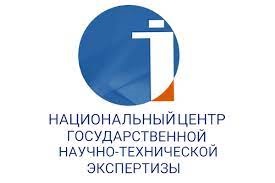ETHNOLINGUISTIC CHARACTER OF «ETIQUETTE /礼貌» IN KAZAKH AND CHINESE PROVERBS
https://doi.org/10.55491/2411-6076-2023-2-97-106
Abstract
This paper describes the essence of courtesy Ethics in Kazakh and Chinese proverbs, the connection of the history of origin with folk culture and traditions, and the originality and principles of national traditions that are inherent in the people. There have been explored the thematic series of «respect», «dignity» and «gratitude». The study emphasizes that ethics in Kazakh and Chinese society is based on basic verbal principles and laws in accordance with the national traditions and respect relations with each other.
The history of the origin and the usage of Proverbs are diverse. In this regard, the study describes the ethnocultural and spiritual cultural similarities (gratitude, respect, understanding, attention, etc.) of the manifestation of relations between the Kazakh and Chinese peoples, which differ in religion and mentality.
The long-established history and the habitat of the Kazakh and Chinese peoples are still inextricably linked with folk wisdom, lifestyle, and behavior in society. So, the proverbs and sayings on the topic of politeness are closely related to the internal factors of these countries, the principles of the management of the families, the countries, and the principles of respect for the older and the younger have survived to this day and are of great importance in the role of the state and society. The paper contains examples of proverbs on the topic of etiquette related to the place they occupy in the upbringing of future generations, covering the customs and practices of ancestors.
About the Authors
А. IbraimovaKazakhstan
Almaty
R. Dossymbekova
Kazakhstan
Almaty
References
1. Formanovskaya N.I. (1989) Chem bogaty, tem i rady. Vy skazali: «Zdravstvuite!» (Rechevoi etiket v nashem obshenii) [The richer they are,the happier they are. You said: «Hello!» (Speech etiquette in our communication)]. – Моskva: Znanie, – 90 p. (in Russian)
2. Kadyrbekova P.K. (2008) Nacionalno-kulturnaya specifika rechevogo etiketa v mezhkulturnom sravnenii [Nationalcultural specifics of speech etiquette in cross-cultural comparison]. – Almaty: KazNU Bulletin Philology series. –Т.3(101). – 64 p. (in Russian)
3. Sabitova Z.K. (2012) Ponyatie o rechevom povedenii. Rechevoye povedenie vchera i segodnya. [The concept of speech behavior. Speech behavior yesterday and today]. Almaty: Kazakh University. – pp.19-20 (in Russian)
4. Ahatova B.A. (2006) Mezhkulturnoye obchenie kak ontologya issledovanya yazikovogo soznanya [Intercultural communication as an ontology of linguistic consciousness research]. – Almaty.132 p. (in Kazakh)
5. Xia Zhiqiang. (2017) Nide di yi ben liyi shu [Your first etiquette book]. – Jiangxi: Meishu chubanshe. pp.27-28 (in China)
6. Tian Xiaona (2021) Liyi quan shu [The book of etiquette] Beijing: Renmin Zhongguo chubanshe. pp. 371-372 (in China)
7. Baiburin A.K., Toporkov A.L. (1990) U istokov etiketa [At the origins of eyiquette]. – Leningrad: Nauka. (in Russian)
8. Chen G., Ou D. (2016). Ri chang jiaowang liyi. Shejiao liyi [Daily communication etiquette. Social etiquette]. Pp.3-4 (in China)
9. Oisylbai A.T. (2015) Akhmet Baitursinuly: «Adebiet tanytkishtagy» kazyrgi adebiet teoryasi [Akhmet Baitursinuly: the theory of modern literature in the «literary genre»]. – Аlmaty: «Eltanym baspasy», – pp.126-127 (in Kazakh)
10. Xiong Jingyu. (2012) Xiandai wenming limao yongyu shouce [Handbook of Modern Civilization and Politeness]. – Beijing: Jindun chubanshe. pp.10 (in China)
11. Cheng Songcen. (2019) Limao yuyan [Polite language]. – Beijing: Shangwu yinshuguan, –pp.2-3 (in China
12. Yu dong, Zhong fang, Lin Xiaoling. (2004) Zhongguo wenhua [Chinese culture]. Zhongguo shuzi wenhua jituan youxian gongsi, – p.14 (in China)
13. Korkyt ata kitaby [Korkyt ata book] (1994) Translated from Turkish by B.Iskakov. – Аlmaty: Zhazushi, – 11 p. (in Kazakh)
14. Smanova A.S., Zhirenov S.A., Ybrayeva K.E., Kakimova L.Sh., Berikbol R.R., Nebesaeva Zh.O., Bekbolatova K.M. (2020) Korkem bilim berudegi ulttyk sana men madeni kundyliktardyn orkendeui [The flourishing of national consciousness and cultural values in art education]. Uzhymdyk monographya. Almaty, – pp.296-297 (in Kazakh)
Review
For citations:
Ibraimova А., Dossymbekova R. ETHNOLINGUISTIC CHARACTER OF «ETIQUETTE /礼貌» IN KAZAKH AND CHINESE PROVERBS. Tiltanym. 2023;(2):97-106. (In Kazakh) https://doi.org/10.55491/2411-6076-2023-2-97-106
JATS XML

















